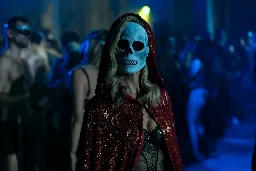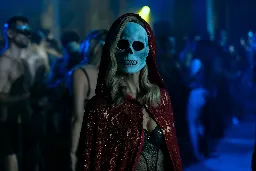Mike Flanagan Says Netflix Was "Actively Hostile" Towards the Idea of Releasing Physical Media: "It Became Clear Very Fast That Their Only Priority Was Subs"
Mike Flanagan Says Netflix Was "Actively Hostile" Towards the Idea of Releasing Physical Media: "It Became Clear Very Fast That Their Only Priority Was Subs"

filmstories.co.uk
Mike Flanagan: Netflix "actively hostile towards physical media"


